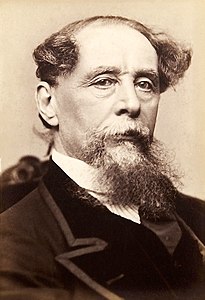My root is Africa,
A true home known only by few,
The home of many great men,
Men of great dreams and ambitions,
The home which men run from,
Men searching for opportunities,
Opportunities made only for a few,
The few who sacrifice life for food,
And many passed away by the things they know,
And only few live for things they know not,
Oh, brothers of the mother land,
Our home is so lonely and hungry,
So hungry for freedom and peace,
The peace of brotherliness,
Make haste my brothers,
While the sun shines.
| Scheme |
XA XB XXAX XX XXXB XX |
| Poetic Form |
|
| Metre |
111100 01111011 0111011 11110010 011111 11010100 0100110101 01110111 01010110111 0101111111 11010101 1011110010 11011001 0111 11110 1011 |
| Closest metre |
Iambic tetrameter |
| Characters |
496 |
| Words |
95 |
| Sentences |
2 |
| Stanzas |
6 |
| Stanza Lengths |
2, 2, 4, 2, 4, 2 |
| Lines Amount |
16 |
| Letters per line (avg) |
25 |
| Words per line (avg) |
6 |
| Letters per stanza (avg) |
67 |
| Words per stanza (avg) |
16 |
Font size:
Submitted on November 28, 2015
Modified on March 05, 2023
Charles Dickens
Charles John Huffam Dickens (; 7 February 1812 – 9 June 1870) was an English writer and social critic. He created some of the world's best-known fictional characters and is regarded by many as the greatest novelist of the Victorian era. His works enjoyed unprecedented popularity during his lifetime, and by the 20th century, critics and scholars had recognised him as a literary genius. His novels and short stories are still widely read today. Born in Portsmouth, Dickens left school to work in a factory when his father was incarcerated in a debtors' prison. Despite his lack of formal education, he edited a weekly journal for 20 years, wrote 15 novels, five novellas, hundreds of short stories and non-fiction articles, lectured and performed readings extensively, was an indefatigable letter writer, and campaigned vigorously for children's rights, education, and other social reforms. Dickens's literary success began with the 1836 serial publication of The Pickwick Papers. Within a few years he had become an international literary celebrity, famous for his humour, satire, and keen observation of character and society. His novels, most published in monthly or weekly instalments, pioneered the serial publication of narrative fiction, which became the dominant Victorian mode for novel publication. Cliffhanger endings in his serial publications kept readers in suspense. The installment format allowed Dickens to evaluate his audience's reaction, and he often modified his plot and character development based on such feedback. For example, when his wife's chiropodist expressed distress at the way Miss Mowcher in David Copperfield seemed to reflect her disabilities, Dickens improved the character with positive features. His plots were carefully constructed, and he often wove elements from topical events into his narratives. Masses of the illiterate poor chipped in ha'pennies to have each new monthly episode read to them, opening up and inspiring a new class of readers. His 1843 novella A Christmas Carol remains especially popular and continues to inspire adaptations in every artistic genre. Oliver Twist and Great Expectations are also frequently adapted and, like many of his novels, evoke images of early Victorian London. His 1859 novel A Tale of Two Cities (set in London and Paris) is his best-known work of historical fiction. The most famous celebrity of his era, he undertook, in response to public demand, a series of public reading tours in the later part of his career. Dickens has been praised by many of his fellow writers – from Leo Tolstoy to George Orwell, G. K. Chesterton, and Tom Wolfe – for his realism, comedy, prose style, unique characterisations, and social criticism. However, Oscar Wilde, Henry James, and Virginia Woolf complained of a lack of psychological depth, loose writing, and a vein of sentimentalism. The term Dickensian is used to describe something that is reminiscent of Dickens and his writings, such as poor social conditions or comically repulsive characters. more…
All Charles Dickens poems | Charles Dickens Books


Discuss this Charles Dickens poem analysis with the community:
Report Comment
We're doing our best to make sure our content is useful, accurate and safe.
If by any chance you spot an inappropriate comment while navigating through our website please use this form to let us know, and we'll take care of it shortly.
Attachment
You need to be logged in to favorite.
Log In